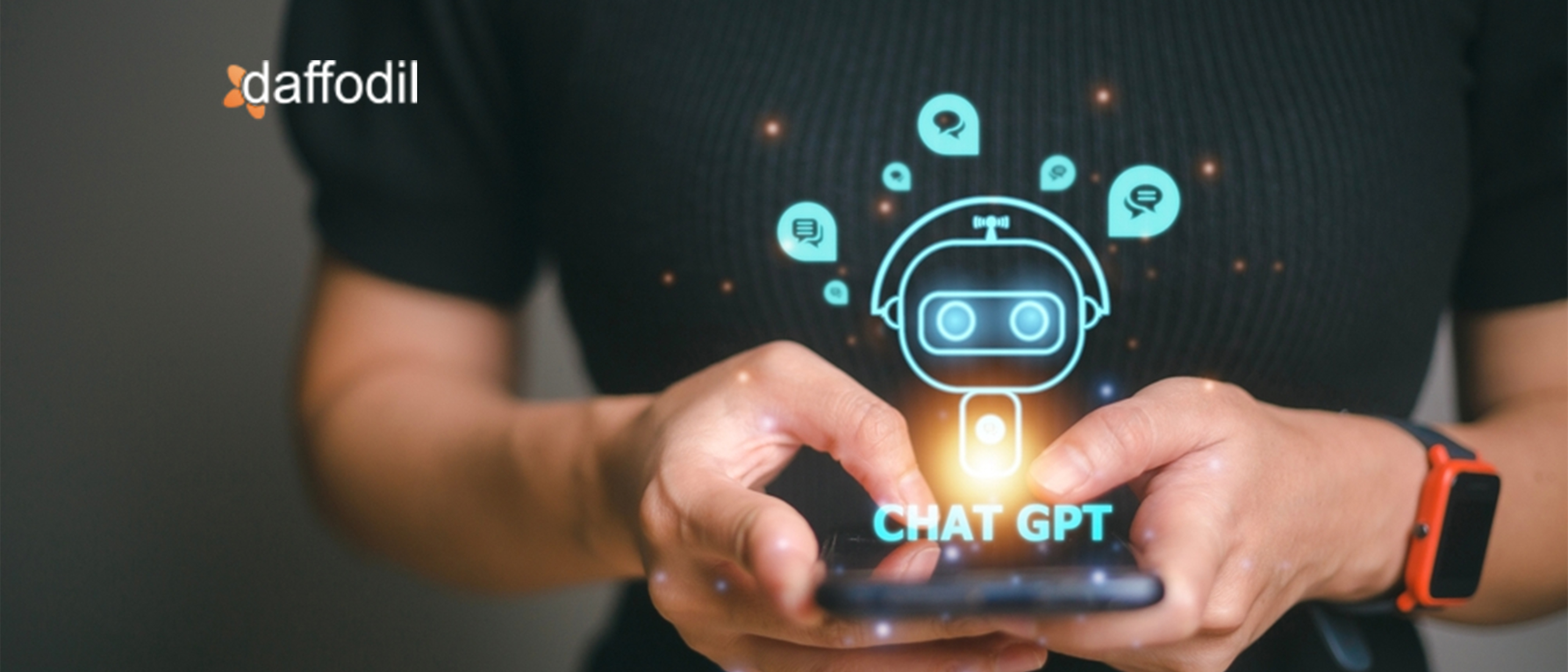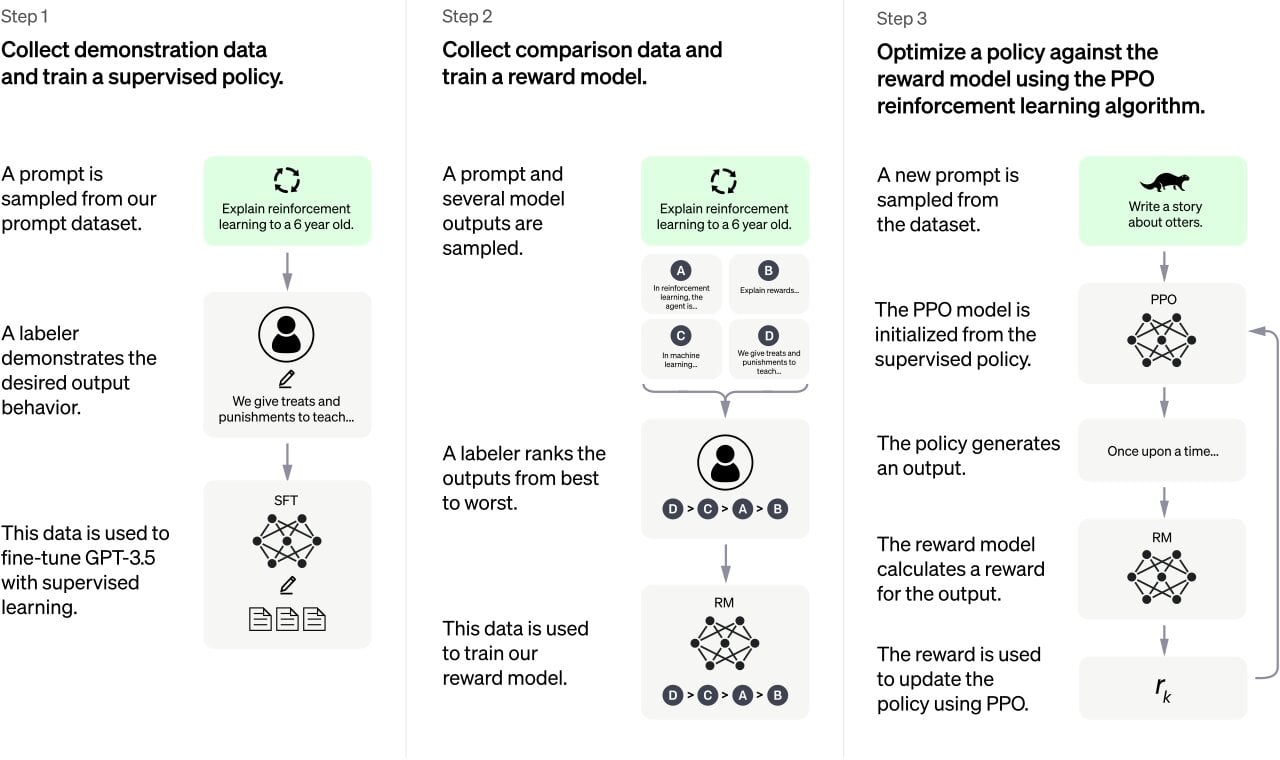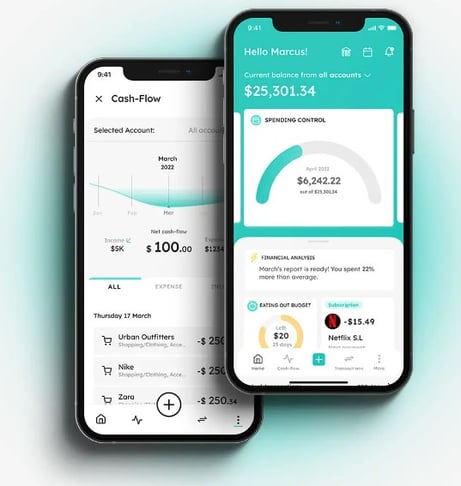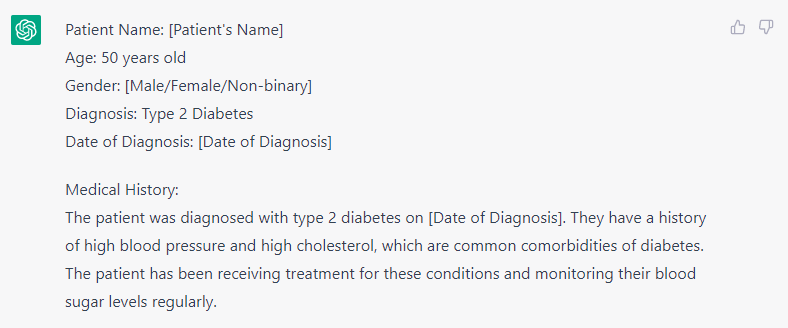
ChatGPT, the conversational Artificial Intelligence (AI) developed by OpenAI and backed by Microsoft, has taken several industries by storm. A number of AI solutions are set to change how businesses function and ChatGPT is expected to rule the roost for the next decade or so. Whether engaging the customer in new ways, enhancing workflows, or assisting with coding, the potential applications of ChatGPT are endless.
Up until a few years ago, AI chatbots could only produce responses based on the specific datasets that they had been trained upon, deeming their 'intelligence' questionable. But over the last five years, AI and machine learning models have begun understanding the sentiment and context behind words and phrases.
The growing intelligence of chatbots such as ChatGPT and Google's Bard has exponentially increased the potential for their implementation across industries. In this article, we will pinpoint the exact areas across five industries where applications of ChatGPT have been demonstrated and may eventually prove to be a game-changer.
What is ChatGPT?
ChatGPT is a conversational AI model developed using various Natural Language Processing (NLP) algorithms and underlying models. It was developed by the American AI research laboratory, OpenAI, with the intention of giving humans the simulated experience of having human-like text conversations based on a specific prompt or query.
While the introduction of Google Bard led to an aggressive debate about the potential of ChatGPT and Bard, the former has been able to maintain a considerable age. The applications of Bard are yet to be fully observed to ascertain how it can be fully leveraged.
This conversational AI solution was built upon several NLP models that constitute a class known as Large Language Models (LLM), primarily the GPT-3 model. Over a period of several weeks, these models read through millions of pieces of text and get trained with datasets varying across domains so that they ultimately enable ChatGPT to create text using large volumes of computational power. While the capabilities of systems like ChatGPT seem futuristic, LLM implementation requires thoughtful data preparation, infrastructure, and governance to deploy responsibly.

Image: How OpenAI trains ChatGPT
Microsoft has already announced plans to invest $10 billion in OpenAI to fund further research on ChatGPT and other large language models which would bring the latter's valuation to $29 billion. With initial plans to integrate this technology into its search engine Bing, there are rumblings around the company that the Microsoft Office suite of tools will also assimilate some form of this conversational AI technology.
ChatGPT Use Cases Across Industries
There is no shortage of opportunities for businesses to integrate ChatGPT into their everyday workflows and applications. Despite certain existing limitations in how holistic the answers provided by this chatbot are, it is already more than able to help businesses grow their bottom line and enhance experiences for their customers.
We have distributed the potential applications of ChatGPT across five major industries - banking, sales & marketing, healthcare, software development, media & entertainment - and explained the multiple possibilities within those industries, below:
Banking
Within three months of the beta version of ChatGPT being opened to the public, bankers from all over the world were feeding it text prompts about extremely niche subjects such as employee retention credits, gamification of deposits, creating financial polls, and so on. This gold rush of sorts led to the following successful use cases that were taken to completion:
1) Personalizing financial advice to suit the needs of very specific customer personas was a godsend for the banking sector. This is because often there is not enough done to ascertain personas that could guarantee great returns. Bankers could use ChatGPT to analyze tons of in-house customer data related to their spending habits and investment vehicles. Based on insights from these analyses appropriate financial advice could be formulated.
2) Fraud detection and malpractice reduction is another area in banking and financial services where ChatGPT can come in. This is done by analyzing customer behavior that led to fraud historically to then apply these patterns in predicting future fraudulent activity and the creation of comprehensive Suspicious Activity Reports (SAR).
3) ChatGPT can also in the near future, help draw up accurate Legal Contracts. Already this chatbot has been able to produce legal prose that could give some of the most superior human lawyers a run for their money.

Image: Sample billing application that uses conversational AI
Sales & Marketing
ChatGPT can help marketing professionals in optimizing the extent of personalization that they can provide their customers through the content that is presented to them. This AI can be applied across channels such as marketing campaigns, advertisements, and social media platforms for this purpose in the following ways:
1) Keyword Analysis involves ChatGPT analyzing large blocks of human-generated textual data and returning a verbiage analysis consisting of the most searched keywords.
2) The simplification of copywriting by this chatbot is especially beneficial for creating compelling marketing and sales copy for promoting brands and products. However, what lacks in these textual copies is personality and verve which can be tweaked into the copies with negligible human intervention.
3) By integrating an advanced chatbot such as ChatGPT into a product-focused website or application, gathering customer feedback and grievance redressal can be automated.
4) It can also be utilized for A/B testing by prompting the AI to create two distinct copies of the product description and gathering powerful campaign insights from multiple focus groups.
Healthcare
There are numerous applications of AI in healthcare. Conversational AI in particular is highly effective in making healthcare processes more efficient and patient-friendly. Here are some examples of how that is made possible:
1) Medical Transcription utilizes speech-to-text technology driven by AI and with ChatGPT in the mix, the transcripts can become far more comprehensive and precise, enabling faster clinical decision-making and reporting.
2) Patient Triage driven by ChatGPT can be utilized by physicians for expedited diagnoses. By feeding the patient's vitals and symptoms to the AI, a potential diagnosis followed by the suggested next treatment steps can be extracted.
3) ChatGPT-integrated patient-facing assistants can be used for scheduling appointments with doctors, helping those not medically inclined to get relevant information about their ailments instantly, and providing information about nearby treatment centers. Monitoring of vitals through the said application can then help alert doctors about potential emergency cases through a conversational doctor-facing chatbot.
4) Summarization of patient records with ChatGPT can assist physicians in getting a holistic view of the patient's family medical history, for properly defining insurance coverage.

Image: A sample summarization of a patient's records by ChatGPT
Programming
Amidst the era of industry-wide mass layoffs, software developers may find that ChatGPT could be adding to the problem. But the truth is that clever use of this AI can actually make you a better programmer at the end of the day. This is how:
1) Learning to code has become a whole lot easier with assistance from ChatGPT. This conversational AI can produce pieces of code following virtually any user prompt for any programming language in the market today giving accurate syntactical feedback as well as suggesting better ways to code based on popular data structures and algorithms.
2) Quality Assurance Automation: In the context of programming, software Quality Assurance (QA) is an often underestimated yet extremely important aspect. Based on this testing article, ChatGPT was able to develop test scenarios and test cases for assessing the effectiveness of a login page's password recovery. Moreover, it could also write an automation script to test the scenarios using Java and Selenium.
3) ChatGPT can also be used to create, maintain and consume system design documentation. You can build system architecture from scratch for developing your software product with this conversational AI.
Media & Entertainment
ChatGPT is entertaining as is even with arbitrary text prompts that you might feed to it just to see what creative results it might come up with. But it has massive potential to transform the media & entertainment landscape as we know it. These are some ways ChatGPT could help filmmakers, scriptwriters, journalists, and other media professionals do so:
1) The field of journalism and news media is quite reluctant in implementing ChatGPT into their creative processes as most of the news media sector sees it as a hindrance to creativity. However, ChatGPT has helped many creative writers overcome writer's block which can help journalists and bloggers who produce content amidst the fast-paced content generation requirements of today.
2) When it comes to writing scripts for films, and interactive video games, as well as generating prompts for novelists, and so on, ChatGPT has demonstrated exceptional near-human levels of creative prowess. Additionally, it has the ability to come up with creative names for characters, unique plot points, and also branching dialogues.
3) New in-platform marketing strategies can be leveraged by OTT platforms. The platform can be outfitted with conversational AI so that users can have live conversations with chatbots so that the most appropriate recommendations can be made to them. Moreover, feedback from users can be utilized to come up with future film and series ideas for guaranteed engagement.
ALSO READ: What is Generative AI and How ChatGPT can Transform Multiple Industries?
ChatGPT Has The Potential to Transform Businesses Across Industries
With the above examples of its applications, we have only scratched the surface of the vast business potential that ChatGPT offers to industries across the board. Revolutionary content creation, enhanced customer experiences, and targeted product recommendations enabled by this conversational AI solution can unlock several strategies for continued growth. If you are looking for an AI application development company, we highly recommend booking a free consultation with us. Our AI Center of Excellence (CoE) can provide you with highly advanced solutions driven by AI and machine learning approaches.






